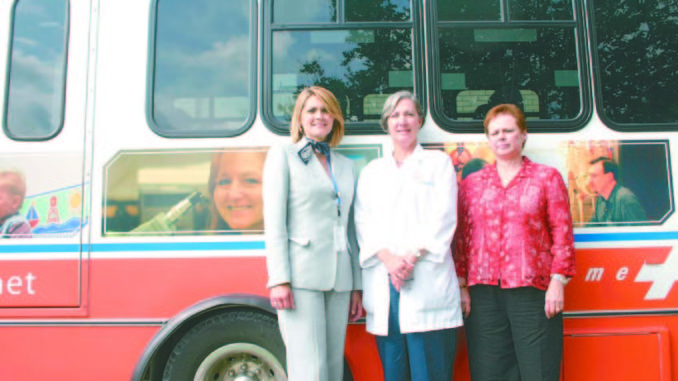
St. Charles Parish Hospital’s staff is prepared for the 2007 hurricane season.
And the lessons learned from past storms have helped the administrative team to reorganize and adjust the hospital’s plan to provide continued support and safety for both patients and staff.
“During Hurricane Katrina, like a lot of other hospitals in the area we had a communications breakdown,” Pam Norfleet, director of marketing, told the Herald-Guide.
“Our hospital staff couldn’t get through and neither could their families.
“So we have implemented a new 1-800 phone number that is part of a call center in Atlanta, GA, that will allow our employees’ families to get updates about them and other important information concerning the area after an evacuation occurs.”
Denise North, registered nurse and medical surgical director is an essential part of the planning team.
“When the parish is placed under a mandatory evacuation, that doesn’t mean the hospital closes right away,” North said.
“We keep our hospital staff in place and they continue to provide patient care until we receive word from the St. Charles Parish Emergency Operations Center that it’s time for everyone to go and no one should remain in the area.”
Once the hospital is given this kind of warning, the next phase of the evacuation plan is activated.
“We transport our patients to DeSoto Regional Hospital in Mansfield, LA,” North said.
“During Hurricane Katrina we evacuated 11 psychiatric patients, nine medical surgical patients, and two intensive care patients.”
The St. Charles Parish Emergency Operations Center has a list of special needs patients in the parish requiring special care and attention who need shelter and can’t evacuate during the storms.
“We housed about 14 special needs residents from the community during Hurricane Katrina,” she said.
“However, they had to bring their own medications, and equipment (like oxygen, ventilators, etc.) and be accompanied by a caregiver to assist them with their needs.”
Marian Oleksik, registered nurse and emergency room department director, said the hospital has some generator power but only for essential areas, once a blackout occurs.
“Not every part of the hospital is run off of the generators once electricity is gone, because of a major storm,” Oleksik said.
“Equipment like dialysis machines, ventilators, oxygen equipment, computer servers and maybe one or two televisions are powered by the generators and some plug receptacles in patients rooms.
“Another lesson Hurricane Katrina taught hospitals all across the nation is to get on the same page.
“We keep our evacuation plans similar to all hospitals under the HEICS plan,” she continued.
“HEICS is an acronym for Hospital Incident Command System, a plan designed to minimize the confusion and chaos that swirls around disasters.”
Norfleet said the purpose of the hospital staff staying behind during a hurricane is to support the community.
“On the day a mandatory evacuation is announced in the parish, all hospital employees must come to work and register at the hospital and stay until the crisis has past,” Norfleet told the Herald-Guide.
“Each unit director has already identified the amount of personnel he or she needs to stay behind to allow patient care to run smoothly,” she continued.
“Other less essential personnel as identified by hospital administration are allowed to leave an evacuate the area with their families,” she said.
“We have enough food, water and supplies to house 500 people for seven days in the event of a major hurricane,” Norfleet said.
“One change that was made due to Hurricane Katrina is the staff has been advised to come alone and only allow their families to stay at the hospital with them as a last resort option,”
“In years past we would encourage the staff to bring their families to stay with them in the hospital in an evacuation,” she said.
“But one of the lessons that Hurricane Katrina taught us, is that this may not be the right decision for families because if things got to a point where rescue people had to come and get staff from the hospital the children are separated from the parents,”
“In some New Orleans area hospitals that’s exactly what happened, the parents were transported out of the area after the children and we wouldn’t want that to happen to our employees or their families.”




Be the first to comment